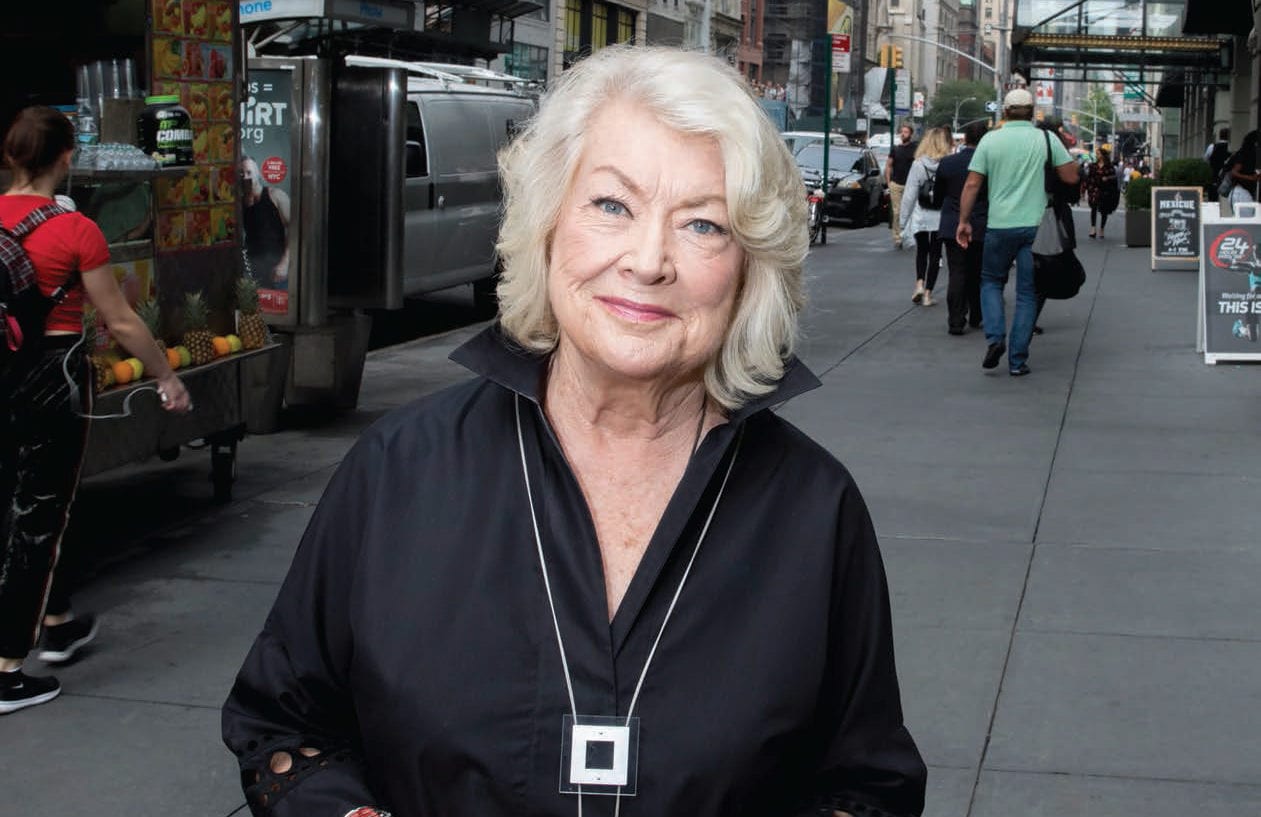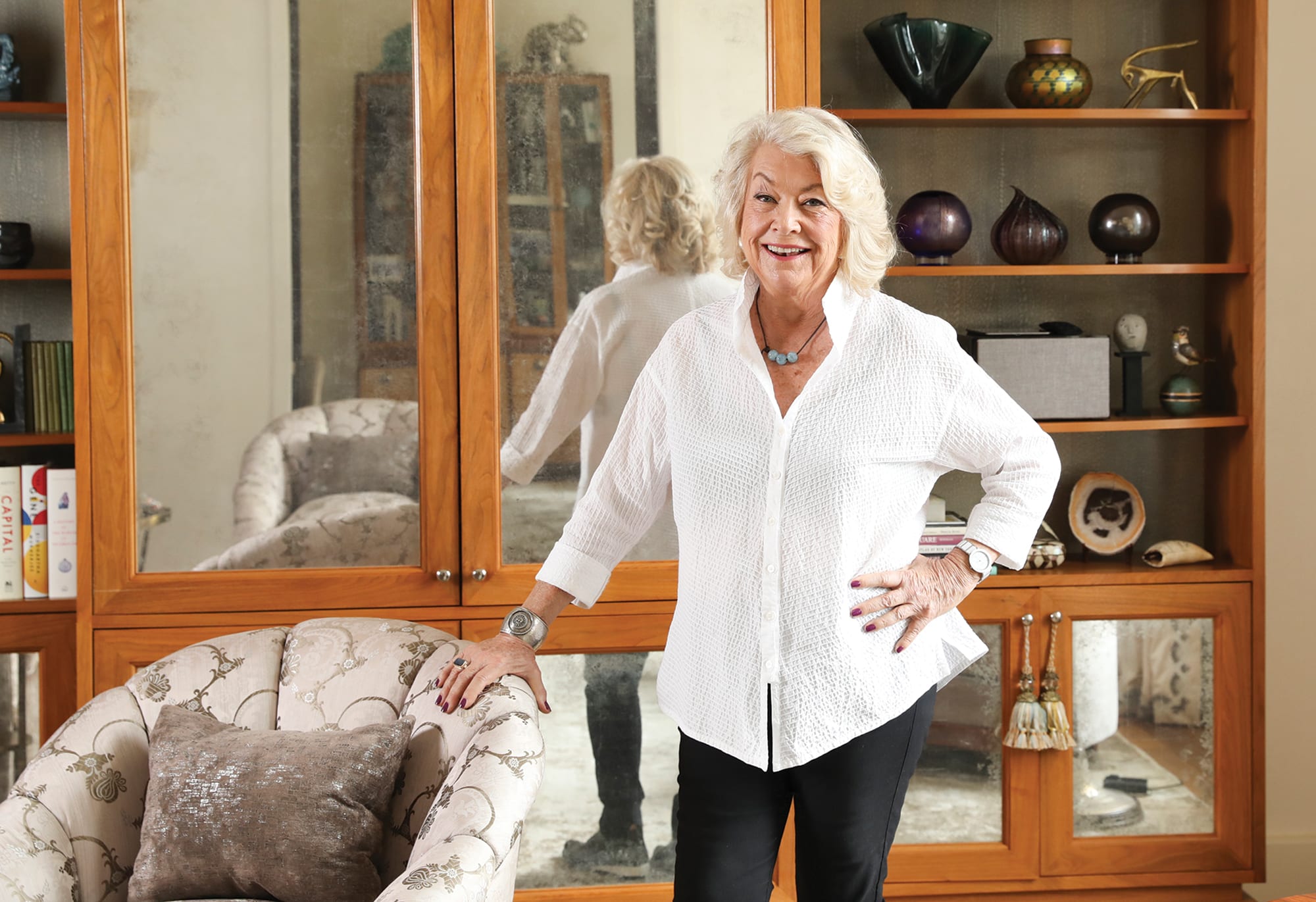With keen business acumen and a focus on personal engagement, Margo Alexander, BS 68, blazed a trail for women in the financial services industry

When Margo Alexander, BS 68, was appointed president and CEO of Mitchell Hutchins Asset Management Inc. in 1995, the PaineWebber subsidiary was in disarray. Barron’s had ranked the group’s family of mutual funds 44th out of 46 places in its annual assessment of mutual fund competitors, and trust had eroded from its clients. Alexander, a 20-year veteran of the PaineWebber organization by then, dug in immediately, reorganizing both personnel and the investment process. She also set about restoring confidence in the firm.
“Building the trust of the brokers was essential,” says Alexander. “When I talked to them, I was transparent about the problems we faced. Most people weren’t used to that frankness.” Within three years, personnel had stabilized, clients had returned, and Mitchell Hutchins Asset Management, with $55 billion in assets under management, had vaulted thirty slots to the 14th position on Barron’s performance rankings.
Alexander’s work in the financial services industry was characterized by that commitment to transparency and trust as well as an exceptional ability to roll up her sleeves and apply an analytical perspective and performance orientation to complex problems. Questioning the status quo was always the first step.
During her 30-year career, she rose to become one of the most senior women on Wall Street as CEO and chairman of UBS Global Asset Management–one of the first women to head a large asset management business. She was also the first woman to head a top-ranked research department and to oversee a major trading floor–doing it all while raising two sons with her late husband, Robert.
Haas Interim Dean Laura Tyson underscores the tenacity required to break those glass ceilings. “When Margo began her career, the behavior toward women in the financial services industry was appalling,” Tyson says. “She was able to handle difficult situations, successfully working with men and always trying to mitigate inequities by hiring and supporting women. As she moved through the ranks, she was able to influence how organizations behaved in those arenas.”
Tyson also lauds Alexander for acting as a role model for younger women who even now, entering the workplace nearly 50 years after Alexander graduated, are unsure whether they can balance the demands of a career with the desire to have a family. “I tell them to read up on Margo,” Tyson says.
For her trailblazing career in the financial services industry, Alexander was awarded Berkeley Haas’ highest distinction, the Lifetime Achievement Award, in November.
Questioning the Status Quo of Wall Street
While an undergrad at Berkeley in the late ’60s, Alexander came to realize that corporate America could play a significant role in addressing the injustices that were fueling campus movements around feminism, environmentalism, and civil rights–and that she should help make it happen.
“[Margo] was able to handle difficult situations, successfully working with men and always trying to mitigate inequities by hiring and supporting women. As she moved through the ranks, she was able to influence how organizations behaved in those arenas.”
—Laura Tyson, Berkeley Haas Interim Dean
“I believed that businesses had to change by becoming more inclusive and playing a broader, more positive role in society,” says Alexander. She read a great deal about economics and organizational behavior and was struck by how few women worked in professional roles across business sectors. “Obviously, women and people of color were not well represented in corporate America, and I thought, ‘This is something I should work toward,'” she says. “It was a huge motivation for me.”
After earning her MBA from Harvard in 1970 (where she was among only 3 percent of women in her graduating class), Alexander was first hired as a security analyst with institutional equity boutique firm Mitchell, Hutchins & Co. After that company merged with PaineWebber in 1977, she continued to rise through the ranks to hold the titles of director of research and director of institutional equity for U.S. and international markets. Finally, in 1995 she became CEO of Mitchell Hutchins Asset Management, the investment arm of PaineWebber, which was acquired by UBS in 2000. Alexander retired in 2003.
Joseph Grano, former chairman and CEO of UBS Financial Services, says that he relied on Alexander as a member of his executive committee as well as his more informal “kitchen cabinet.” He says, “Margo had both the ability to articulate vision and strategy as well as the demeanor to win hearts and minds in a way that made people want to follow her.” Alexander played a critical role in authoring a mandatory Respect in the Workplace training program for the firm, Grano says, and helped develop a program to make it easier for operational employees to purchase company stock.
Her influence on employees was profound. “She changed the DNA of the firm,” says Mary C. Farrell, whom Alexander recruited and who retired in 2005 as chief investment strategist for UBS Wealth Management, USA, and co-head of the Wealth Management Research department. “She ran a trading desk full of young guys who said, ‘I’ll never work for a woman.’ Within a year they were saying, ‘Margo is the best!’ She had an extraordinary ability to connect with anyone.”
Leading with Confidence
Though she acknowledges the significance of her marquee professional “firsts,” Alexander says that as she reflects, two more qualitative aspects of her career have brought her the most enjoyment: management and personal engagement.
“I love that intellectual part of figuring out management, articulating ways to improve, and then convincing people that it’s a good idea.” Alexander says.
“I believed that businesses had to change by becoming more inclusive and playing a broader, more positive role in society. Obviously, women and people of color were not well represented in corporate America, and I thought, ‘This is something I should work toward.’ It was a huge motivation for me.”
—Margo Alexander, BS 68
She especially liked matching people’s talent to the right job. “Margo liked to move the pieces around,” says Farrell, whom Alexander moved from a research role to a strategy position early on in her career. “I wasn’t even sure I could do it, but strategy ended up being where I made my career. She gave people chances.”
With her employees, Alexander always made it a point to be personally engaged, taking a real interest in the lives of the people with whom she worked. “I understood early that most people spend more time at work than they do with their family, and I really cared about how people felt about their work and work environment,” she says.
In some cases that meant building relationships with her employees’ families. “I know that lots of people, particularly women, dislike their partner’s bosses. And I knew that having a woman as a boss was peculiar as most of my employees were men.” Alexander reached out to their wives and even hosted family picnics at her Long Island home. “I didn’t want to be a boss that people’s families hated,” she says.
Farrell says that as a manager and colleague, Alexander was fundamentally kind. “She was as tough as she needed to be, but she never lost her humanity.” Proof of this came when friends threw a party in Alexander’s honor a few years back, inviting former employees and colleagues to gather in appreciation. “Some of the people who came were people Margo had fired, and they still gave toasts!” laughs Farrell.
Alexander even occasionally receives thank-you letters from employees whom she hasn’t seen in decades, telling her she made an important difference in their lives. “I feel great about that,” she says.
Bringing Business Acumen to Acumen
When Alexander retired from UBS in 2003, she turned her focus to interests fueled at Berkeley: social change and corporate responsibility. She joined Acumen, a global nonprofit changing the way the world tackles poverty by investing in sustainable businesses, leaders, and ideas. She served as board chair for nine years of Acumen’s first decade, and, as chair emeritus, continues as a board member.
“Millions of people end up in terrible circumstances for unfair, unfortunate reasons,” says Alexander. “They have no opportunity to make the best of their lives. They’re constrained in every direction.”
Rather than investing traditional capital, Acumen’s approach is to invest early stage philanthropic, or “patient,” capital to provide startups with the flexibility and security to grow their businesses and reach as many poor customers as possible. Alexander’s traditional financial services expertise complemented Acumen’s social impact mission, says Tyson. “She played a pivotal role in building Acumen’s model.”
To date, Acumen has invested $110 million to build more than 102 social enterprises in countries including Uganda, Kenya, Ghana, Pakistan, India, Colombia, and the U.S. These companies have created and supported 60,000 jobs and brought basic services like affordable education, health care, clean water, energy, and sanitation to more than 200 million people.
Going Beyond for Berkeley Haas
Alexander’s commitment to equity reaches beyond her work with Acumen, back to the campus where her interest in the topic was awakened.
She is on the senior advisory board for the Center for Responsible Business and has served on the Haas School Board since 2001. Alexander’s wisdom and support has helped to boost the number of female students at Haas and to create Haas’ Institute for Business & Social Impact. In 2017, she was awarded Haas’ Cora Jane Flood Award, which recognizes an alumna’s significant philanthropic impact on the school.
There have been only seven Lifetime Achievement Award winners since the accolade’s inception in 1970. That Alexander is its first female recipient has a certain poetry, echoing the pioneering nature of her career–though Alexander didn’t set out to be a trailblazer. “It didn’t occur to me that financial services would be super hard,” she says. “I just thought, ‘well, move ahead.'”
But her career does smack of the extraordinary. “Margo had no role models of women in the financial services industry,” says Farrell. “She had to break through so many barriers and glass ceilings on Wall Street, and there was never any recognition of the meaning of those accomplishments as they happened. No one deserves this award more.”
Tyson agrees. “Margo Alexander is one of the school’s outstanding alums, a visionary leader who gives back to Haas,” she says. “Her life reflects the contribution a Haas degree makes not just to a graduate’s income and career but to society as a whole.”
